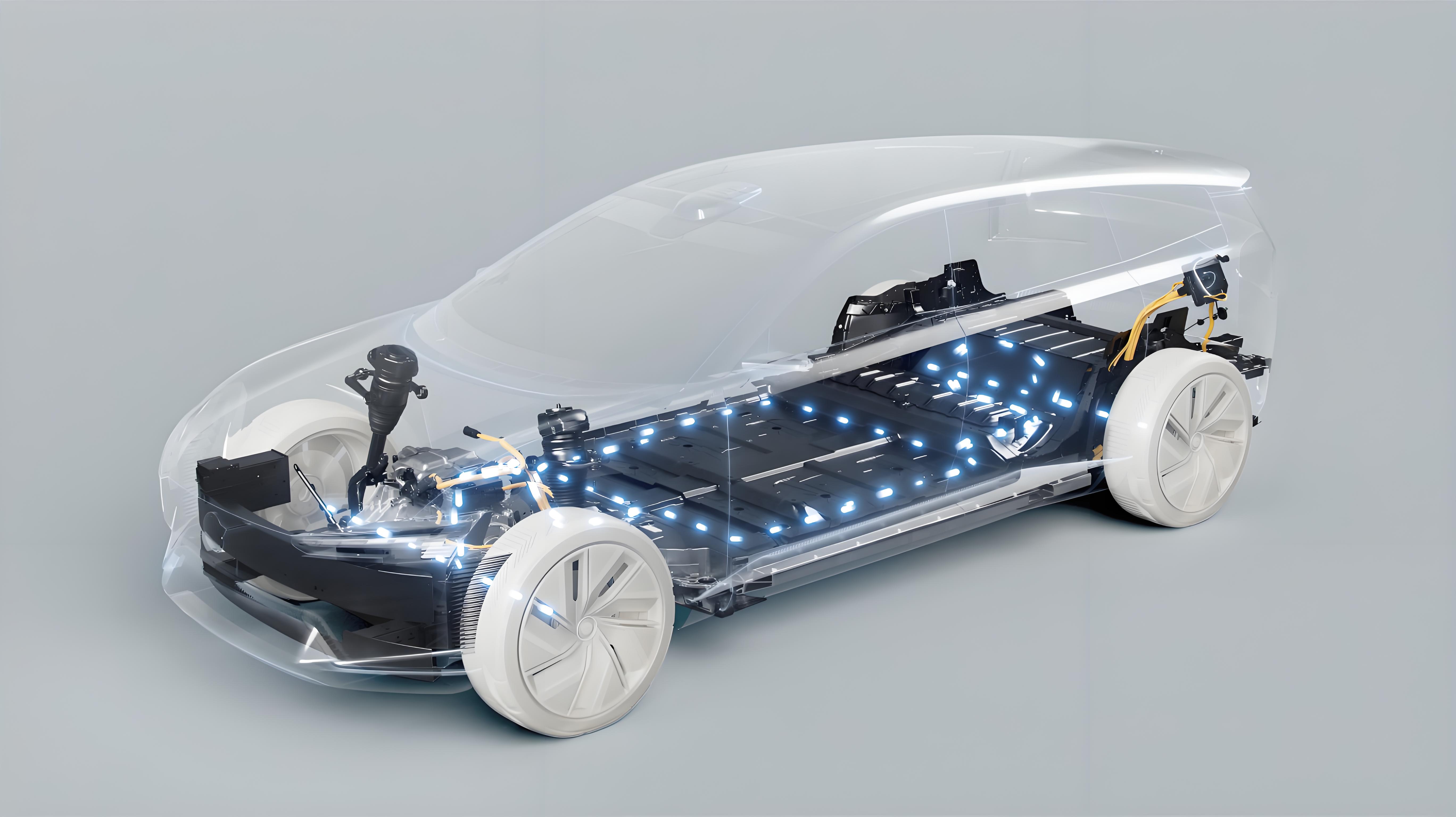Revolutionizing the Battery Industry: Innovations and Trends
The battery industry has witnessed a rapid evolution in recent years, driven by advancements in technology and a growing demand for more efficient and sustainable power sources. As the world becomes increasingly reliant on portable electronic devices, electric vehicles, and renewable energy sources, the need for high-performance batteries has become paramount. This article explores the innovations and trends that are revolutionizing the battery industry and shaping the future of energy storage.
One of the most significant advancements in battery technology is the development of lithium-ion batteries. These batteries have revolutionized portable electronics, enabling longer-lasting and more powerful devices. Lithium-ion batteries store and release energy through the movement of lithium ions between two electrodes, a process that results in higher energy density and faster charging times compared to traditional batteries. With continuous research and development, lithium-ion batteries have become smaller, lighter, and more efficient, making them the preferred choice for smartphones, laptops, and other portable devices.
The rise of electric vehicles (EVs) has also fueled the demand for high-capacity batteries that can provide long-range performance. The automotive industry has responded by investing heavily in battery research and development. One notable innovation is the solid-state battery, which offers increased energy density, faster charging times, and improved safety compared to traditional lithium-ion batteries. Solid-state batteries use a solid electrolyte instead of a liquid electrolyte, reducing the risk of leakage or explosion. Companies like Toyota and BMW have already announced plans to introduce solid-state batteries in their upcoming electric vehicles, promising to revolutionize the EV market.
Renewable energy sources like solar and wind power have become increasingly popular alternatives to traditional fossil fuels. However, their intermittent nature poses challenges for grid stability. Energy storage systems, primarily based on batteries, have emerged as a solution to this problem. These systems store excess energy during periods of low demand and release it during peak hours or when renewable sources are unavailable. Lithium-ion batteries, with their high energy density and ability to deliver power quickly, are the preferred choice for energy storage. As demand for renewable energy continues to grow, advancements in battery technology will play a crucial role in ensuring a reliable and sustainable energy grid.
In addition to lithium-ion and solid-state batteries, other promising battery technologies are being explored. One such technology is the lithium-sulfur battery, which has the potential to deliver higher energy density and lower costs compared to existing battery technologies. Lithium-sulfur batteries use a sulfur-based cathode and a lithium metal anode, offering the possibility of storing more energy within the same volume. Researchers are working to overcome challenges such as the degradation of the sulfur cathode and the formation of dendrites on the lithium anode to make lithium-sulfur batteries commercially viable.
Another area of innovation is the development of flexible and stretchable batteries. These batteries are designed to be integrated into wearable devices, electronic textiles, and even implantable medical devices. Flexible batteries use innovative materials and designs to withstand bending and stretching without compromising performance. As the demand for wearable technology continues to grow, flexible and stretchable batteries will play a vital role in enabling new applications and improving user comfort.

As the battery industry continues to evolve, sustainability has become a key focus. The extraction and disposal of battery materials have significant environmental impacts. To address this issue, researchers are exploring alternative materials and manufacturing processes. For instance, the use of bio-based materials and recycling of battery components can reduce the carbon footprint associated with battery production. Additionally, advancements in battery management systems and smart charging technologies can prolong battery lifespan, reducing the need for frequent replacements and minimizing waste.
The battery industry is undergoing a revolution driven by advancements in technology and the increasing demand for efficient and sustainable power sources. From lithium-ion batteries to solid-state and lithium-sulfur batteries, innovations are shaping the future of energy storage. Flexible and stretchable batteries are enabling new applications in wearable technology, while advancements in battery sustainability are addressing environmental concerns. As the world transitions to a cleaner and more electrified future, the battery industry will play a pivotal role in enabling this transformation.
-
 The 12V 100Ah LiFePO4 Lithium Battery is a cutting-edge power source that offers superior efficiency and reliability for a variety of applications. This type of battery is becoming increasingly popular in the market due to its numerous benefits over traditional lead-acid batteries. In this article, we will explore the features and advantages of the 12V 100Ah LiFePO4 Lithium Battery. ...더 읽어보세요
The 12V 100Ah LiFePO4 Lithium Battery is a cutting-edge power source that offers superior efficiency and reliability for a variety of applications. This type of battery is becoming increasingly popular in the market due to its numerous benefits over traditional lead-acid batteries. In this article, we will explore the features and advantages of the 12V 100Ah LiFePO4 Lithium Battery. ...더 읽어보세요 -
 Introduction The demand for energy is constantly increasing, and traditional energy management systems are struggling to keep up. However, with the advent of smart grids and the ever-improving technology of lithium batteries, a new era of energy management is dawning. This article explores the potential of these two innovations in revolutionizing energy management. Smart Grids: The Backbone of...더 읽어보세요
Introduction The demand for energy is constantly increasing, and traditional energy management systems are struggling to keep up. However, with the advent of smart grids and the ever-improving technology of lithium batteries, a new era of energy management is dawning. This article explores the potential of these two innovations in revolutionizing energy management. Smart Grids: The Backbone of...더 읽어보세요 -
 Today, as the electric vehicle industry is booming, lithium-ion automotive batteries play an important role as the core power source. This article will provide an in-depth analysis of the technical composition, performance characteristics, and current market conditions of lithium-ion automotive batteries, but will not cover specific application areas, innovative technologies, and future prospects. Technical Composition Lithium-ion automotive batteries are mainly...더 읽어보세요
Today, as the electric vehicle industry is booming, lithium-ion automotive batteries play an important role as the core power source. This article will provide an in-depth analysis of the technical composition, performance characteristics, and current market conditions of lithium-ion automotive batteries, but will not cover specific application areas, innovative technologies, and future prospects. Technical Composition Lithium-ion automotive batteries are mainly...더 읽어보세요 -
 서문 최근에는 안전과 감시에 대한 관심이 높아짐에 따라 보안 모니터링 시스템에 대한 수요가 급격히 증가하고 있습니다. 기존 보안 모니터링 시스템은 유선 연결에 크게 의존했기 때문에 정전 및 인프라 손상에 취약했습니다. 그러나 리튬 배터리 기술의 발전으로 이제 보안 모니터링 시스템이 향상되어 중단 없는 서비스를 제공할 수 있습니다.더 읽어보세요
서문 최근에는 안전과 감시에 대한 관심이 높아짐에 따라 보안 모니터링 시스템에 대한 수요가 급격히 증가하고 있습니다. 기존 보안 모니터링 시스템은 유선 연결에 크게 의존했기 때문에 정전 및 인프라 손상에 취약했습니다. 그러나 리튬 배터리 기술의 발전으로 이제 보안 모니터링 시스템이 향상되어 중단 없는 서비스를 제공할 수 있습니다.더 읽어보세요 -
 High-capacity 12V 200Ah LiFePO4 Lithium Battery: Unleashing the Power of Long-lasting Energy StorageIntroduction: In recent years, the demand for high-capacity energy storage solutions has been on the rise due to the increasing need for reliable and sustainable power sources. Amongst the various options available, the 12V 200Ah LiFePO4 lithium battery has emerged as a frontrunner in the field of long-lasting energy storage. This article explores the features, benefits, and potential applications of...더 읽어보세요
High-capacity 12V 200Ah LiFePO4 Lithium Battery: Unleashing the Power of Long-lasting Energy StorageIntroduction: In recent years, the demand for high-capacity energy storage solutions has been on the rise due to the increasing need for reliable and sustainable power sources. Amongst the various options available, the 12V 200Ah LiFePO4 lithium battery has emerged as a frontrunner in the field of long-lasting energy storage. This article explores the features, benefits, and potential applications of...더 읽어보세요 -
 소개 최근 몇 년 동안 효율적이고 안정적인 전력 저장 솔루션에 대한 수요가 증가하고 있습니다. 이는 재생에너지, 전기자동차, 통신과 같은 산업에서 특히 그렇습니다. 큰 주목을 받고 있는 기술 중 하나는 리튬인산철(LiFePO4) 48V 배터리입니다. 이 기사에서는 이 배터리의 기능, 장점 및 응용 분야를 살펴보는 것을 목표로 합니다.더 읽어보세요
소개 최근 몇 년 동안 효율적이고 안정적인 전력 저장 솔루션에 대한 수요가 증가하고 있습니다. 이는 재생에너지, 전기자동차, 통신과 같은 산업에서 특히 그렇습니다. 큰 주목을 받고 있는 기술 중 하나는 리튬인산철(LiFePO4) 48V 배터리입니다. 이 기사에서는 이 배터리의 기능, 장점 및 응용 분야를 살펴보는 것을 목표로 합니다.더 읽어보세요 -
 With the increasing demand for renewable energy, energy storage has become more important than ever before. The development of lithium-ion batteries has revolutionized the energy storage industry, making it possible to store large amounts of energy efficiently and cost-effectively. Among the different types of lithium-ion batteries, the Lithium Lifepo4 battery has become increasingly popular because of its unique properties. ...더 읽어보세요
With the increasing demand for renewable energy, energy storage has become more important than ever before. The development of lithium-ion batteries has revolutionized the energy storage industry, making it possible to store large amounts of energy efficiently and cost-effectively. Among the different types of lithium-ion batteries, the Lithium Lifepo4 battery has become increasingly popular because of its unique properties. ...더 읽어보세요

